 In this area the Bannabikira sisters are called to work with women’s groups in clubs, teach in vocational schools, to reach out to children and people with disabilities such as the deaf and mute,
In this area the Bannabikira sisters are called to work with women’s groups in clubs, teach in vocational schools, to reach out to children and people with disabilities such as the deaf and mute,
Health Ministry
 “May they have life to the full”. John:
“May they have life to the full”. John:
Health ministry is as old as the congregation itself. Since we are guided by the spirit of motherhood, each Munnabikira Sister must have a basic knowledge of health care.
For this reason the founder instructed his new founded sisters to learn the medicinal herbs from the mothers who entrusted the care of their children to the Bannabikira Sisters.From that time in every convent one sister was assigned the responsibility of taking care of both the sick nuns and the children. Consequently, a beautiful custom persisted among the Bannabikira to grow local herbs for the treatment of various diseases.
The Bannabikira Sisters in a health sector are charged with the promotion and maintenance of peoples’ health through health education; theirs is the duty to prevent the diseases that cause illnesses within the communities where they serve. Still it is their ultimate responsibility to help a dying person die a peaceful and a dignified death because he or she was made in God’s image. No wonder the founder wanted the sisters to give a holistic care to the sick they attended to. Like Watson the Daughters of Mary sisters believe that “A troubled soul can lead to the illness, and illness can cause disease.” For “Illness, dying and death have always been critical human experiences that invoke one’s spiritual beliefs and call upon one’s spiritual centre. They bring pain, threats to the self and to one’s existence, and fear of the unknown... Illness, dying and death place a person in existential crisis.” In order to help their patients face illness, dying and death constructively, the sisters had to take a long and hard look on their patients’ patterns of beliefs about illness.
While serving in health sectors, we combine our motherhood spirit with the medical expertise to lead the patients we treat to God. This is in congruent with our readiness to receive the living water from the pieced side of Jesus and allow it to spill over the sick we support and teach to achieve a health seeking behaviour through health education talks.
In 1940s Bannabikira worked as nurse aids with their co-founders, “The White Sisters” at Villa Maria, Nkozi and Rubaga hospitals. We have moved with the time: 2 Bannabikira Sisters qualified as enrolled nurses in 1959. Presently we have Sisters as medical doctors, Bachelor of Science nurses, Nursing Administrators, Tutors, Clinical Officers, Registered Nurses/Midwives, Laboratory Technologist and Assistants, Pharmacists.
HOSPITALS/ HEALTH UNITS BANNABIKIRA SISTERS SERVE
 Villa Maria Hospital founded in 1902 by our Co- founders; Bannabikira run it from 1973 – present, Kalungu District, Masaka Diocese
Villa Maria Hospital founded in 1902 by our Co- founders; Bannabikira run it from 1973 – present, Kalungu District, Masaka Diocese
 Bwanda Motherhouse Health Centre (1925- present) Masaka Diocese
Bwanda Motherhouse Health Centre (1925- present) Masaka Diocese
 Nkozi hospital: Bannabikira worked as Nurses under the White Sisters from 1943 – 1973, Kampala Archdiocese
Nkozi hospital: Bannabikira worked as Nurses under the White Sisters from 1943 – 1973, Kampala Archdiocese
 Buyege Dispensary (1961 – handed to Parish Council in 200), Kampala Archdiocese
Buyege Dispensary (1961 – handed to Parish Council in 200), Kampala Archdiocese
 Mitala Maria Medical Services (1968–1996 & re-opened 2008 – present), Kampala Archdiocese
Mitala Maria Medical Services (1968–1996 & re-opened 2008 – present), Kampala Archdiocese
 Bukalagi Health Centre (1970 – present) Kiyinda Mityana Diocese
Bukalagi Health Centre (1970 – present) Kiyinda Mityana Diocese
 Nawanyago Health Centre: Medical services 1972- present) Jinja Diocese
Nawanyago Health Centre: Medical services 1972- present) Jinja Diocese
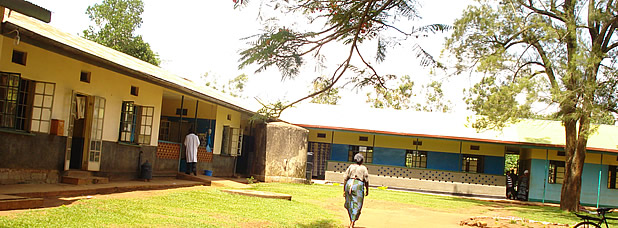 ( Nawanyago Health Centre )
( Nawanyago Health Centre )
 Lubaga Hospital (1973 to present) Kampala Archdiocese
Lubaga Hospital (1973 to present) Kampala Archdiocese
 Villa Maria Hospital handed to Bannabikira by Co-founders (1973- present) Masaka Diocese
Villa Maria Hospital handed to Bannabikira by Co-founders (1973- present) Masaka Diocese
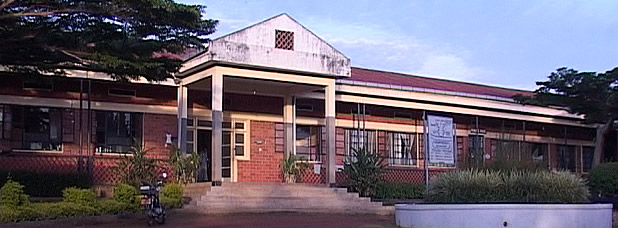 ( Villa Maria Hospital )
( Villa Maria Hospital )
 Kitovu Hospital: we worked under Medical Missionaries of Mary (1977 –January 2001)
Kitovu Hospital: we worked under Medical Missionaries of Mary (1977 –January 2001)
 Nyansiongo Mission Hospital (1978- present) Kisii Diocese Kenya
Nyansiongo Mission Hospital (1978- present) Kisii Diocese Kenya
 Katimba Health Centre (1983 – present) Masaka Diocese
Katimba Health Centre (1983 – present) Masaka Diocese
 Kitaasa Health Centre: (1984 – present) Masaka Diocese
Kitaasa Health Centre: (1984 – present) Masaka Diocese
 Bannabikira Established St. Lawrence Nurses’ Training School Villa Maria: (1984 – present), Masaka Diocese
Bannabikira Established St. Lawrence Nurses’ Training School Villa Maria: (1984 – present), Masaka Diocese
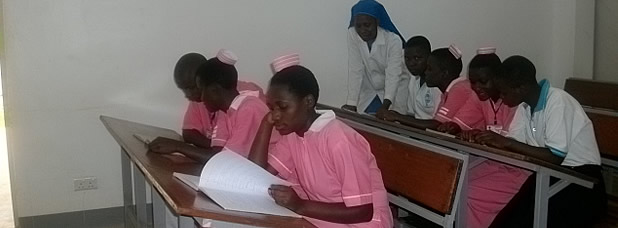 ( Student Nurses in a lecture at St. Lawrence Nurses’ Training School Villa Maria )
( Student Nurses in a lecture at St. Lawrence Nurses’ Training School Villa Maria )
 Rubaga Hospital Nurses and Midwifery School: (1988- present), Kampala Archdiocese
Rubaga Hospital Nurses and Midwifery School: (1988- present), Kampala Archdiocese
 Madudu Medical Serves: (1989 – present), Kiyinda Mityana Diocese
Madudu Medical Serves: (1989 – present), Kiyinda Mityana Diocese
 Losilang in Karamoja: Medical services: (1989 –present) Kotido Diocese
Losilang in Karamoja: Medical services: (1989 –present) Kotido Diocese
 Ruzo Medical Services: (1990 –1996 closed due to war in 1997) Ruzo Diocese in Burundi
Ruzo Medical Services: (1990 –1996 closed due to war in 1997) Ruzo Diocese in Burundi
 Hoima Diocese Community Based Care: (1986 -1999) Hoima Diocese
Hoima Diocese Community Based Care: (1986 -1999) Hoima Diocese
 Bumangi in Ssese Islands (1998 – present) Masaka Diocese
Bumangi in Ssese Islands (1998 – present) Masaka Diocese
 Kasaala Medical Services: (1999 –present) Kampala Archdiocese
Kasaala Medical Services: (1999 –present) Kampala Archdiocese
 Kkonge Medical services (1999- present) Kampala Archdiocese
Kkonge Medical services (1999- present) Kampala Archdiocese
 Kitovu Hospital: Bannabikira took over the managerial roles from the Medical Missionaries of Mary (February 2001 – present) Masaka Diocese
Kitovu Hospital: Bannabikira took over the managerial roles from the Medical Missionaries of Mary (February 2001 – present) Masaka Diocese
 Barbaton in South Africa: Medical Services (2005- 2008) Diocese of Barbaton, S. Africa
Barbaton in South Africa: Medical Services (2005- 2008) Diocese of Barbaton, S. Africa
 Mulajje Medical Services: (2008- present), Kasana Luwero Diocese
Mulajje Medical Services: (2008- present), Kasana Luwero Diocese
 Bujuni Health Centre: (2009 – present), Hoima Diocese
Bujuni Health Centre: (2009 – present), Hoima Diocese
 Kaliiro Convent: medical services: (2011 – present) Masaka Diocese
Kaliiro Convent: medical services: (2011 – present) Masaka Diocese
 Nabiretuk Convent in Moroto: Medical services, school (2011- ) Moroto Diocese
Nabiretuk Convent in Moroto: Medical services, school (2011- ) Moroto Diocese



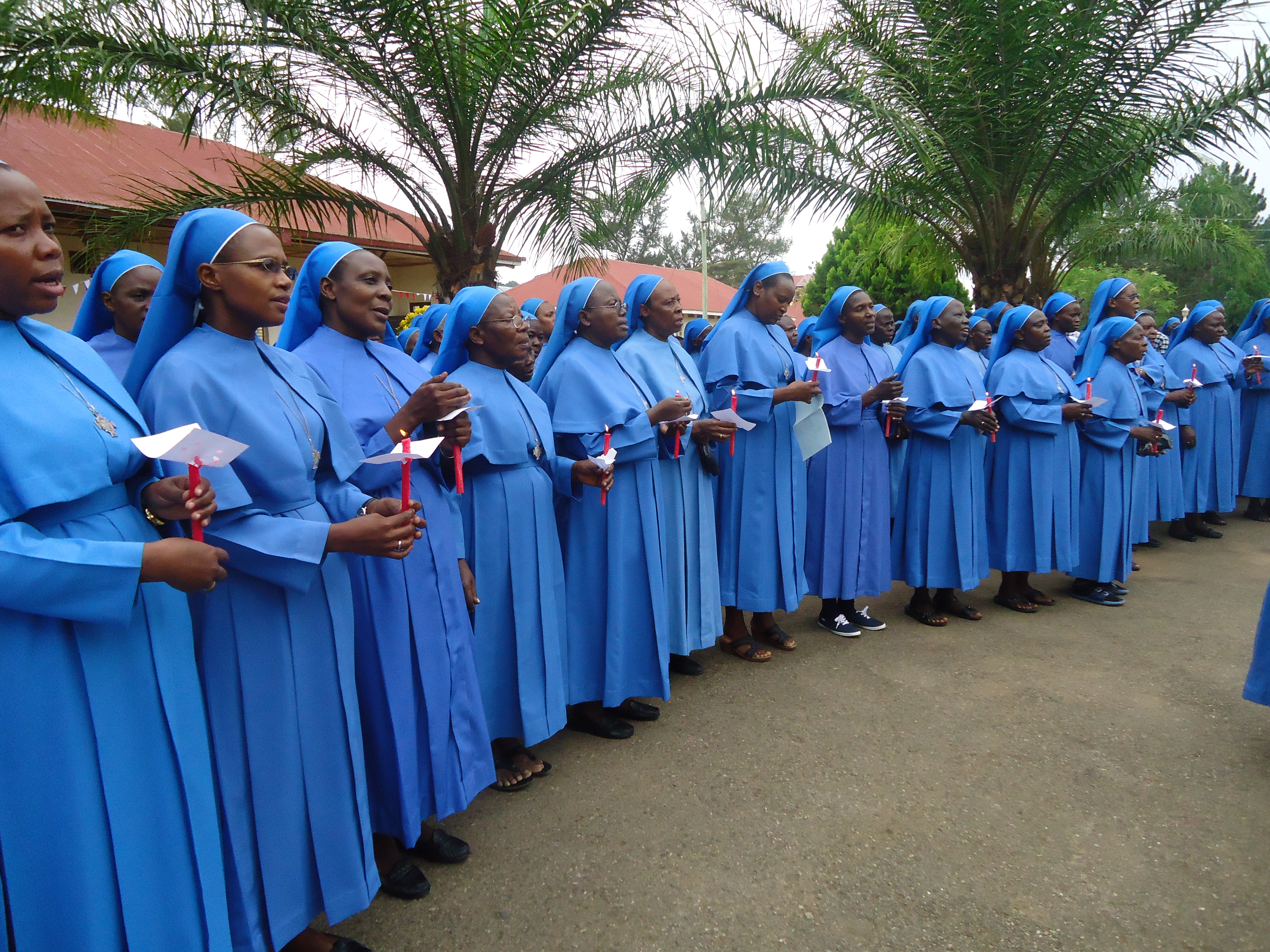
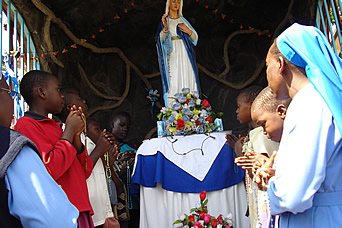 Jesus says to every Munnabikira:
Jesus says to every Munnabikira: